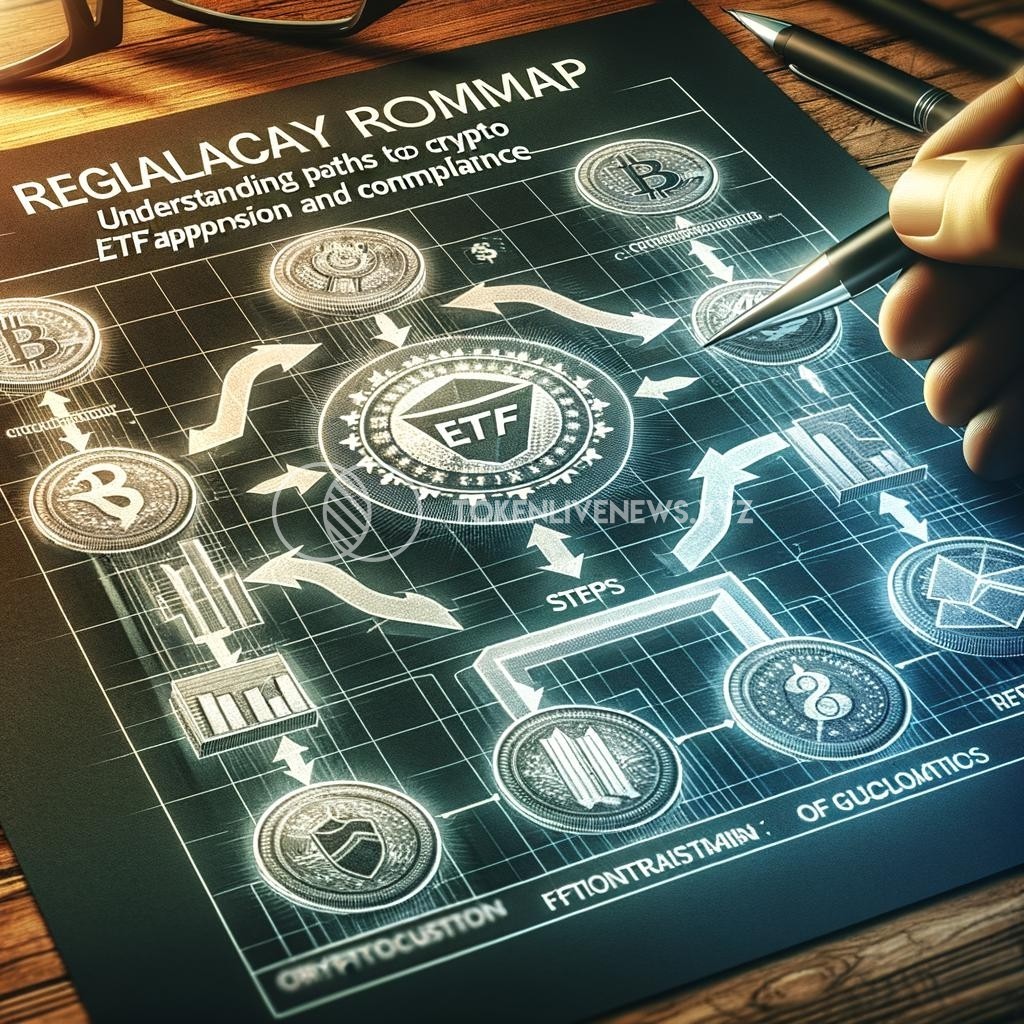Cryptocurrency Exchange-Traded Funds (ETFs) have been a hot topic in the world of finance, with many investors eager to jump on the crypto bandwagon. However, the road to regulatory approval for these products can be a long and winding one. Understanding the path to crypto ETF approval and compliance is crucial for investors and industry players alike.
Background and Context
Cryptocurrency ETFs are investment products that track the price of digital currencies such as Bitcoin and Ethereum. These ETFs allow investors to gain exposure to the volatile and rapidly growing crypto market without having to directly invest in the underlying assets themselves. The potential for huge returns has attracted both retail and institutional investors, leading to a surge in demand for crypto ETFs.
The Path to Approval
Regulatory approval for crypto ETFs is a complex process that involves various regulatory bodies, including the Securities and Exchange Commission (SEC) in the United States. The SEC has been cautious in approving crypto-related products due to concerns about market manipulation, fraud, and investor protection. To address these concerns, ETF issuers must meet stringent compliance standards and provide robust measures to ensure the security and integrity of their products.
Compliance Requirements
To obtain regulatory approval, ETF issuers must demonstrate compliance with all relevant laws and regulations governing the crypto market. This includes KYC (Know Your Customer) and AML (Anti-Money Laundering) requirements, as well as transparent reporting and disclosure standards. Additionally, ETF issuers must implement robust security measures to protect investors’ assets from cyber threats and hacking attacks.
Challenges and Controversies
The path to crypto ETF approval is not without its challenges and controversies. Critics argue that ETFs could exacerbate market volatility and increase the risk of fraud and manipulation. Moreover, regulators are concerned about the lack of transparency in the crypto market, making it difficult to detect and prevent illicit activities. These challenges must be addressed to ensure the long-term viability and sustainability of crypto ETFs.
Conclusion
Navigating the regulatory roadmap to crypto ETF approval requires a thorough understanding of the regulatory landscape and compliance requirements. ETF issuers must work closely with regulators to address concerns and build trust with investors. By meeting compliance standards and implementing robust security measures, ETF issuers can pave the way for the widespread adoption of crypto ETFs and unlock new opportunities for investors in the digital asset space. The Potential Impact of Crypto ETFs
Market Expansion and Accessibility
The approval of crypto ETFs could potentially open up new avenues for investors to gain exposure to the digital asset market. ETFs are known for their ease of access, allowing investors to buy and sell shares on traditional stock exchanges, which could attract a broader investor base. This accessibility could lead to increased liquidity in the crypto market, potentially reducing price volatility and increasing market efficiency.
Institutional Adoption and Credibility
The approval of crypto ETFs could also pave the way for greater institutional adoption of digital assets. Institutional investors, such as hedge funds, pension funds, and asset managers, often have stringent investment requirements that may limit their exposure to cryptocurrencies. However, the introduction of regulated ETFs could provide these investors with a more familiar and secure way to invest in digital assets, increasing the credibility and legitimacy of the market.
Market Growth and Innovation
The approval of crypto ETFs could fuel market growth and innovation in the digital asset space. ETFs could enable the creation of new products and investment strategies that cater to different investor preferences and risk profiles. Additionally, the increased regulatory oversight and transparency associated with ETFs could attract more mainstream investors to the crypto market, fostering greater innovation and competition among market participants.
Overall, the approval of crypto ETFs has the potential to have a profound impact on the digital asset market, paving the way for increased accessibility, institutional adoption, and market growth. As regulatory scrutiny continues, ETF issuers must continue to collaborate with regulators to address concerns and build trust with investors, ultimately unlocking new opportunities and driving the widespread adoption of crypto ETFs.







